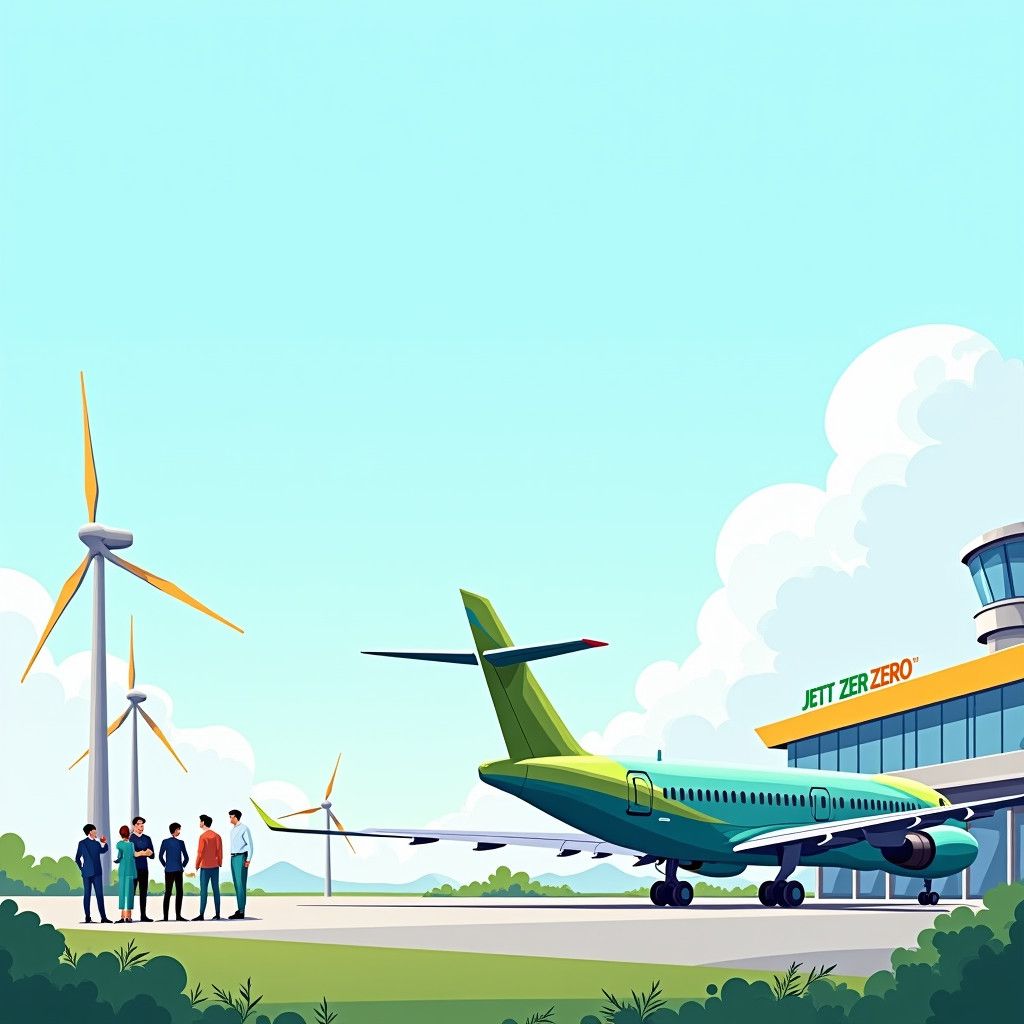The aviation industry stands at a critical crossroads as it faces mounting pressure to reduce its environmental impact. In the UK, the newly formed Jet Zero Taskforce aims to transform how people fly by prioritizing sustainable practices in aviation. This initiative aligns with the government’s broader mission to establish the UK as a clean energy superpower while boosting the economy. The first meeting of this Taskforce is scheduled for December 4, and it could mark a significant shift in the future of air travel.
The Jet Zero Taskforce is built upon the foundations laid by the previous Jet Zero Council, and its objectives encompass crucial areas such as the production and delivery of sustainable aviation fuels (SAF) and the examination of zero-emission flights. With the signing of the SAF Mandate, the government has expressed its clear commitment to establishing a robust UK SAF industry. Starting January 2025, the requirement mandates a gradual increase in the use of SAF in total jet fuel, ultimately reaching 22% by 2040.
This goal of integrating sustainable fuels is not just a regulatory milestone; it represents one of the most developed pathways towards greener aviation. As airlines begin to utilize SAF, there is a tangible opportunity for the sector to transition toward a more environmentally responsible operation. SAF can be derived from various sources, including household waste or innovative power-to-liquid technology. The flexibility in sourcing offers a promising outlook for the aviation sector’s future.
Louise Haigh, Secretary of State for Transport, has emphasized the importance of addressing climate change and building an aviation sector that prioritizes sustainability. Haigh stated, “We need to make flying a cleaner, greener experience, and the new and improved Jet Zero Taskforce will be the driving force behind this transition.” Her statement encapsulates the government’s intent to foster collaboration among industry stakeholders to tackle the challenges facing modern aviation.
Tim Alderslade, CEO of Airlines UK, echoed the sentiment that collaboration is essential. He stated, “The UK can lead the way in net-zero aviation, ensuring our world-class aviation and aerospace companies can continue to support a growing UK economy.” Alderslade’s comments highlight the potential for the UK to not only achieve its environmental targets but also bolster economic growth through leadership and innovation in the aviation sector.
Beyond sustainable fuels, the Taskforce’s agenda includes discussions regarding the demand for greenhouse gas removals, as well as the non-CO2 impacts of aviation, which includes the effects of vapour trails. These elements are crucial for painting a comprehensive picture of aviation’s environmental footprint and are essential for developing strategies that aim to minimize it.
The diverse selection of Taskforce members, representing various sectors of the aviation industry, ensures that no corner of aviation is overlooked. This collaborative framework aims to accelerate progress towards sustainable aviation at scale. Holly Boyd-Boland, Vice President of Corporate Development at Virgin Atlantic, articulated the need for collaboration by stating, “Decarbonising our sector requires radical collaboration— a shared goal underpinned by a bias to action.” Such statements highlight the urgency and commitment necessary for achieving meaningful change.
The launch of the Jet Zero Taskforce also coincides with the Department of Transport’s investment of up to £450,000 to support aviation decarbonization efforts in other countries. This funding will assist developing nations in forging policies that foster the use of sustainable aviation fuels and support carbon offset initiatives for international flights. This global perspective underscores the interconnected nature of the aviation industry and its environmental responsibilities.
The urgency for sustainable aviation is further emphasized by the UK’s ambitious new target to reduce emissions by 81% by 2035, a commitment solidified at COP29 in Azerbaijan. Such targets not only enhance the UK’s stature as a destination for investment but also promise to generate new employment opportunities and economic growth. This emphasis on sustainability aligns perfectly with the wider demands of consumers and governments alike for cleaner energy solutions.
As the International Civil Aviation Organization (ICAO) prepares to celebrate its 80th anniversary, Secretary-General Juan Carlos Salazar Gómez’s visit marks a significant moment. During this visit, a memorandum of understanding regarding UK-ICAO cooperation will be signed, covering various areas and reinforcing the UK’s role in shaping the future of global aviation policy.
In conclusion, the formation of the Jet Zero Taskforce represents a pivotal step towards achieving sustainable aviation in the UK. By focusing on sustainable aviation fuels, enhanced collaboration, and comprehensive environmental impact assessments, the Taskforce is set to architect a new era for air travel. As stakeholders come together with a shared vision, the goal of reducing emissions while supporting a resilient aviation sector within the UK is not only achievable but essential for the future.












